Learning with Other Families: How to Start a Science Co-op
Are you still teaching science all by yourself? If so, maybe it’s time to start a science co-op.
Teaching science can be daunting for homeschooling parents. Maybe it’s the creepy crawlers, the dissections, the thought of all those experiments in the kitchen, or just the time involved.
This is why studying science within a small co-op can be an excellent choice for many families and it’s an easy way to add in some of those fun science activities for middle school.
But where to begin?
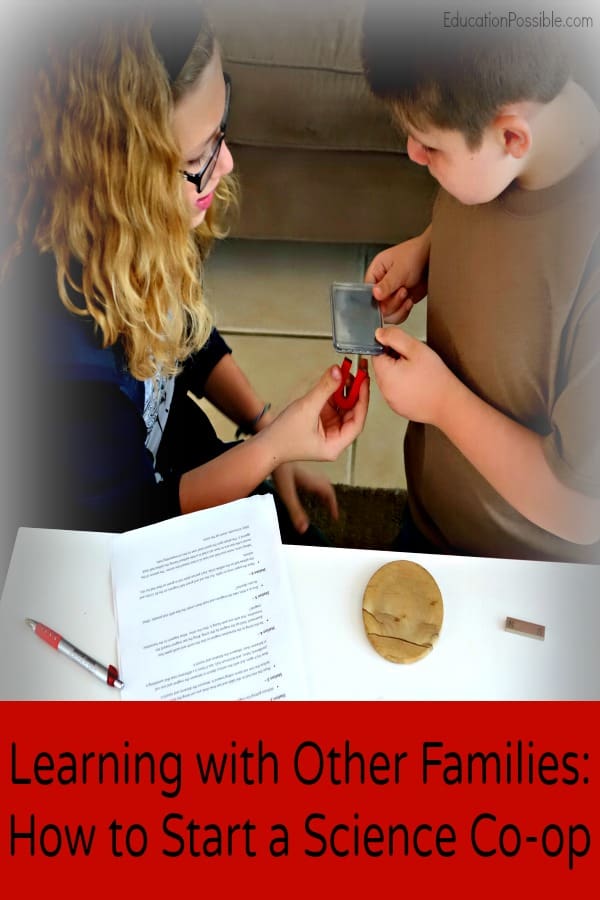 This post contains affiliate links.
This post contains affiliate links.
Just start talking to your friends!
See who enjoys teaching science and wants to join forces with you. Perhaps you’re the science buff among your friends. You could offer to run the science co-op and maybe someone else would be willing to teach a different subject.
For example, I teach our science co-op and Susan teaches our book club.
By being a part of a co-op, everyone can share the load and work on the lessons and experiments together.
You’ve found your tribe, but how do you actually get your co-op started?
Tips for Starting a Science Co-op
Decide what you’re going to study.
First, everyone needs to sit down to figure out what type of science you want to learn. Biology, chemistry, physics?
When the kids were a bit younger, we chose a subject that was important to all of the kids – animals. By starting with something that the kids were already interested in, we knew they would excited about the lessons.
Over the course of a couple of years, we learned all about sea creatures, land animals and some birds.
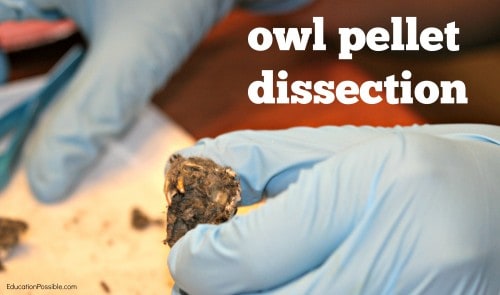
Decide how you’re going to learn.
Now it’s time to figure out how you’re going to teach the information. Will you use a textbook approach or something else?
For our animals studies, we used the Zoology books from Apologia.
This year, we decided to think outside the “textbook” and use the Disney Imagineering Video Series to help us study physics.
Decide what you’re going to add to the basic lessons.
- Will you be taking field trips?
When we studied animals together, we frequently met at Walt Disney World (Animal Kingdom and Epcot) to see the animals we were studying in person.
I planned a variety of activities for the kids to do while we were there, to enhance the lesson and make our time more interactive.
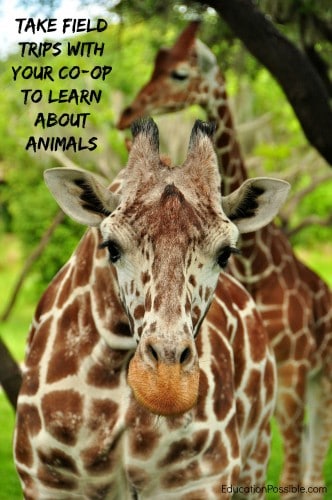
- Will you include hands-on activities and experiments?
I would highly recommend adding as many of these as you have time for. Kids love figuring things out, especially with their friends.
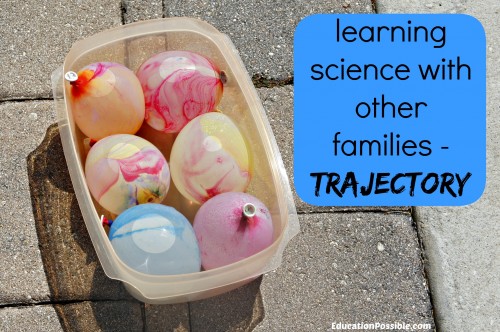
This year, during our study of physics, I have included a large number of hands-on activities to help the kids put what they were learning into action.
Now that the kids are in middle school, I often set up the experiments in stations and let the kids work through them on their own.
I’ve written about our experience studying levers and friction.
How do I find a lot of our experiments? Pinterest! It is full of great ideas to bring science to life.
Follow Education Possible’s board Hands-on Science on Pinterest.
Additional questions for you to ponder.
- What learning materials will everyone have to purchase?
- Who will pay for any items needed for experiments?
Will you split the cost or will one family cover it? Will each family buy their own materials or will the person teaching buy enough for everyone?
- How often will you meet?
Once a week or maybe once a month?
- What types of things will be covered together and what will you need to do on your own?
Will you do most of the book learning with your own family and only come together to do experiments or will you learn the lesson together as well as working on the fun stuff?
- Where will you meet?
At someone’s house or perhaps a local park?
- Who will be teaching?
Will one parent teach the whole time or will you take turns?
If you’re still unsure about what a co-op is, check out “What is a Homeschool Co-op?”.
As you can see, starting a science co-op isn’t too hard and could be very beneficial for you and your family. Consider adding some cooperative learning into your home school plan.
How does your family study science?
Make sure you join us this week as we continue sharing ways to learn with other families.
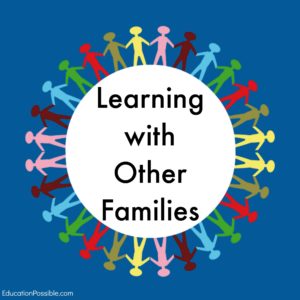

I love this idea! We did pool science with my sister in law and another family a couple of years back, but now we live too far into the boonies to make it possible. It’s so much fun with a group of kids!
Would you consider linking this up to Saturday Science? I think more families could use this post.